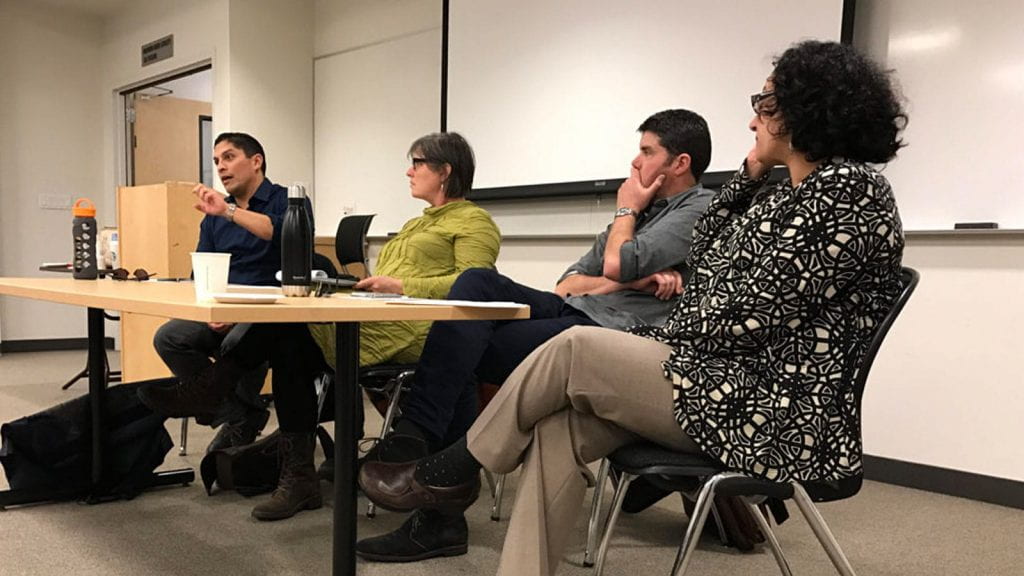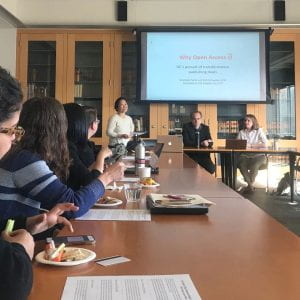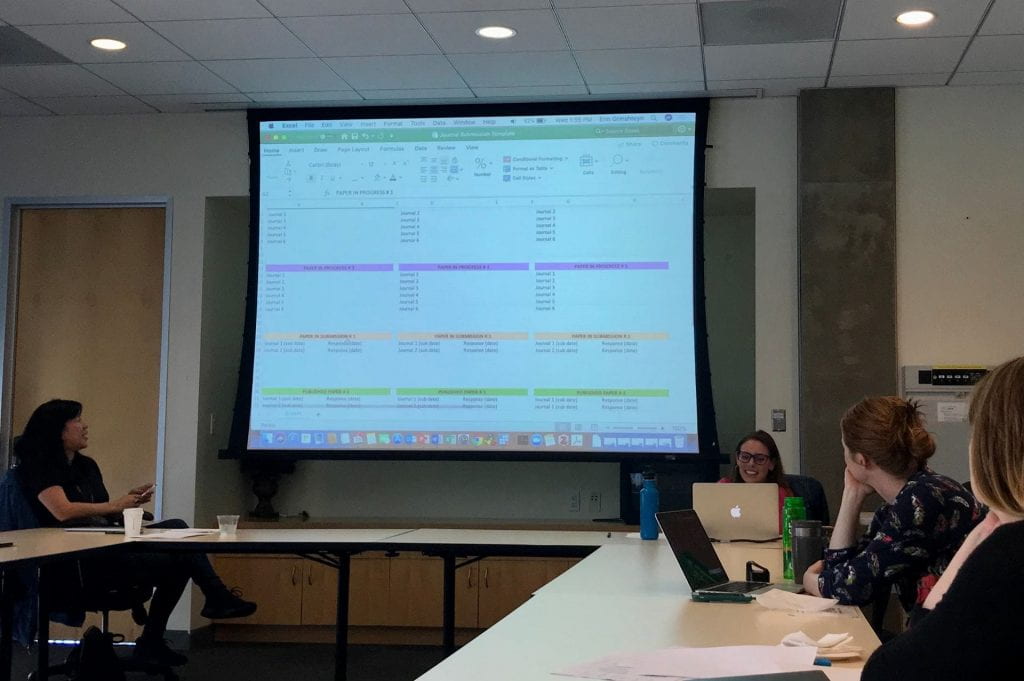CRASE Negotiating Book Contracts
During the CRASE Negotiating Book Contracts Panel, Monisha Bajaj from the Department of International and Multicultural Education, Keally McBride from the Department of Politics, Dean Rader from the Department of English, and Manuel Vargas from the Department of Philosophy and School of Law shared their experiences developing book proposals, negotiating contracts, and working with different publishers and editors. Collectively, their experience includes academic publications, poetry, edited collections, and textbooks.

When beginning the book proposal process, all panelists emphasized the importance of considering why you want to write a book in the first place. Are you writing the book for tenure or promotion? Are you trying to raise your reputation as a scholar? The prestige of the publication press is important if you are writing for scholarly prestige. As you develop your proposal, be honest and realistic about the audience for the book, and target publishers who have previous experience with your research or topic area. Attending conferences will allow you to know the press, field, and market, and to find editors. Another strategy shared by our panelists was to look at the acknowledgement section of books you enjoy where you may find names of people who are reputable in the publishing business. Something to keep in mind is that the timeline for publication with a university press can be significantly longer. One panelist had a book that took 14-18 months and another took approximately 3 years. If you have a shorter timeline, other possible venues for publication include a commercial press or a book series, which can be good for networking and visibility.
As you develop your proposal, consider your audience. The editor who might initially review the proposal might not be a scholar, but for a scholarly book, the proposal will be sent to external reviewers. Your proposal should be targeted to the people who are reading the proposals, and the panelists discussed being courteous and cautious if sending simultaneous proposals because sometimes reviewers work with a few presses and might notice if they see your proposal multiple times.
When a press is interested, there are several elements up for negotiation in your contract including artwork customization, author discounts, number of free copies, timeframe for publication in paperback, copyediting costs, and copyright reversal. One panelists suggested asking the price of your book in your contract. Deciding what to negotiate is usually personal and depends on the book. For example, if accessibility for your students or field practitioners is important to you, having your book in paperback might be something to consider. During negotiations, you can be better positioned for negotiating if you have another publisher interested in your project, but you need to be mindful what you are using your leverage for.
Once your book is published, stay in communication with your press to help with advertising and marketing your book. While the marketing plan will be different for every project, there are things you can do to sell your work, which includes letting your publisher know if you attend conferences so they can make sure to stock your book and coordinate signings. Also, inform your publisher if you are on a panel or if you have articles published. If you publish a textbook, you can pitch your book to professors and department chairs.
At the University of San Francisco, scholarly communications librarian Charlotte Roh provides one-on-one consultations on book contracts and is a resource on scholarly publications. If you would like to see an example of a book proposal, please contact crase@usfca.edu
![INSIDE CRASE [Backup Jan 2021]](http://usfblogs.usfca.edu/crase/files/2018/02/crase_logo-1nupzm8.png)



Leave a Reply